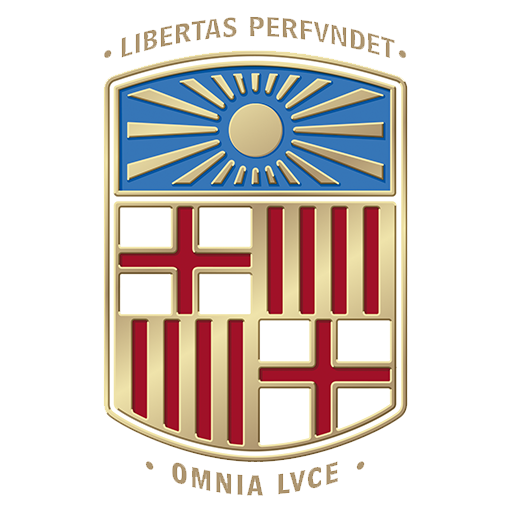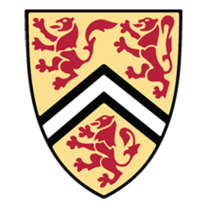Year One
Introduction to Engineering Professionalism and Practice
What does it mean to be an engineer? Whether you have already decided to pursue a particular discipline or are still wondering which engineering avenue to take completion of this module will see you better informed on your direction of study and equipped with essential tools for studying engineering such as good communication skills professionalism and ethical integrity With a practical focus on demonstrating your skills you will have time to prepare for internships future employment and induction to the community of engineers which embraces those working in academic industrial and commercial environments
Read more about the Introduction to Engineering Professionalism and Practice moduleLink opens in a new window including the methods of teaching and assessment (content applies to 2021 22 of study)
Dynamics and Thermodynamics
You will gain a thorough understanding of the fundamental concepts of thermodynamics and the dynamics of mechanical systems You will study the motion of an object and its causes in one and two dimensions and learn to solve a range of problems using appropriate coordinate systems You will learn how to use quantities such as impulse momentum work and energy conservation to solve problems in dynamics You will develop an understanding of engineering thermodynamics considering the properties of working fluids and mechanisms of heat transfer You will develop and apply an understanding of the First and Second Laws of Thermodynamics and learn to make appropriate assumptions to model real-life engineering situations including engine cycles
Read more about the Dynamics and Thermodynamics moduleLink opens in a new window including the methods of teaching and assessment (content applies to 2021 22 of study)
Electrical and Electronic Circuits
You will gain a secure foundation in the fundamental concepts of circuits devices and systems that underpin all branches of engineering This will include study of the mathematical operations of AC quantities including phasors vectors and complex numbers You will study the electronic components that comprise complex electrical and electronic circuitry and control systems theory You will be encouraged to develop your problem-solving and modelling skills to prepare you for more advanced material in later
Read more about the Electrical and Electronic Circuits moduleLink opens in a new window including the methods of teaching and assessment (content applies to 2022 23 of study)
Engineering Design
Design is a major activity within all branches of engineering This module aims to introduce students to the complexities of the design task and equip them with some of the techniques and experience required to design for a function and manufacturing construction process within their discipline You will learn the ability to generate innovative designs and solutions to problems to design for a particular manufacturing process to collaborate effectively across teams and deliver compelling presentations of designs
Read more about the Engineering Design moduleLink opens in a new window including the methods of teaching and assessment (content applies to 2021 22 of study)
Engineering Mathematics
Through the practical problem-solving tasks provided in this module you will gain the skills needed to apply the fundamental mathematical concepts that underpin all engineering disciplines and prepare yourself for more advanced study You will apply mathematical probabilistic and statistical tools and techniques to real-life engineering problems make appropriate informed assumptions and examine models using analytical statistical and numerical techniques
Read more about the Engineering Mathematics moduleLink opens in a new window including the methods of teaching and assessment (content applies to 2022 23 of study)
Introduction to Engineering Business Management
Most professional engineers apply their skills in a business organisation and so are required to appreciate the industrial and commercial environment in which they operate You will use a systems approach to understand and work within the economic constraints affecting performance across a range and variety of businesses By studying key aspects of business management including strategic marketing accounting and costing and product lifecycle you will develop your communication skills using different media and gain the business acumen required to work in a competitive environment
Read more about the Introduction to Engineering Business Management moduleLink opens in a new window including the methods of teaching and assessment (content applies to 2021 22 of study)
Materials for Engineering
As an Engineer you will be required to evaluate and select appropriate materials and manufacturing processes whilst taking due account of performance cost and sustainability During this module you will learn to distinguish the main classes of materials explain how their structure affects their properties and describe how their structure can be manipulated to enhance those properties You will make decisions on the appropriateness of materials for a particular design and justify your choices as well as being able to evaluate their environmental impact
Read more about the Materials for Engineering moduleLink opens in a new window including the methods of teaching and assessment (content applies to 2021 22 of study)
Statics and Structures
Statics and the behaviour of structures underpin civil engineering and many other branches of engineering science You will acquire the knowledge required for further study in the design and analysis of structures from buildings to infrastructures and motor vehicles to wind turbines There is a focus on increasing your competence in mathematical analysis and applying this to solve real-life problems in structures You will develop practical knowledge of experimental work and the ability to observe and record hands-on experiments including raising your awareness of health and safety issues in the laboratory
Read more about the Statics and Structures moduleLink opens in a new window including the methods of teaching and assessment (content applies to 2021 22 of study)
Systems Modelling Simulation and Computation
Systems modelling is an essential skill that underpins all engineering disciplines allowing complex engineering problems to be approximated using mathematical models Systems modelling provides necessary information to make decisions in the design and development of engineering solutions or to investigate systems that are too costly difficult or unethical to investigate physically This module focuses on the design and programming of models from first principles by the application of mathematical techniques and avoidance of modelling errors You will learn how to represent multi-domain systems graphically derive models from data construct a simulation model to predict system responses and consider design principles that ensure robust model development (covering verification and validation techniques)
Read more about the Systems Modelling Simulation and Computation moduleLink opens in a new window including the methods of teaching and assessment (content applies to 2022 23 of study)
Year Two
Dynamics and Fluid Mechanics
Electromechanical System Design
Engineering Mathematics and Data Analytics
Technical Operations Management
Civil Engineering Design 1
Civil Engineering Materials and Structural Analysis
Forensic Engineering
Year Three
Civil Engineering Design 2
Numerical modelling is a useful tool to civil engineering design You will be introduced to the practice and reporting on civil engineering structural analysis by application of software packages and develop ability and skills to be able to apply design procedures informed by structural codes to design building and other structures and solutions of geotechnical and water engineering design problems using numerical computing tools
Read more about the Civil Engineering Design 2 moduleLink opens in a new window including the methods of teaching and assessment (content applies to 2021 22 of study)
Concrete Structures
The design of concrete structures is a mainstream activity of professional civil engineers and represents a significant economic activity concrete structures are of such scale and complexity that they require extensive management for their procurement maintenance and reuse or demolition You will learn the principles of limit state design and the margins of uncertainty associated with loading material properties and type of structural action Through analysis of the structure and design of concrete sections you will determine their form and size and investigate the relationship between design durability and ease of construction
Read more about the Concrete Structures moduleLink opens in a new window including the methods of teaching and assessment (content applies to 2021 22 of study)
Geotechnical Engineering
As a civil engineer you need the sound understanding of geotechnical engineering that this module provides As well as attaining essential knowledge of geology and the principles of geotechnical engineering you will have practical opportunities to construct and interpret maps compare and categorise soil and rock types accurately and apply appropriate tests to a range of geotechnical problems in order to predict the ground response under different conditions of loading soil type and groundwater states You will consider practical applications for example related to seepage instability and settling and design earth-retaining structures
Read more about the Geotechnical Engineering moduleLink opens in a new window including the methods of teaching and assessment (content applies to 2021 22 of study)
Steel Structures
The design of steel structures is a mainstream activity of professional civil engineers and represents a significant economic activity steel structures are of such scale and complexity that they require extensive management for their procurement maintenance and reuse or demolition You will study the function of structures as load-bearers and the response of members joints and frames and propose the form and size of structural elements through sketches plans and calculations You will consider alternative structural solutions in the light of client requirements and evaluate the results of structural analysis in order to satisfy requirements for both design and safety
Read more about the Steel Structures moduleLink opens in a new window including the methods of teaching and assessment (content applies to 2021 22 of study)
Water Engineering for Civil Engineers
Knowledge of water engineering is essential for good practice in civil and environmental engineering You will gain underpinning knowledge in open-channel hydraulics and engineering hydrology that will serve as a sound base for other relevant civil and environmental modules and your professional practice Specific areas you will cover include the principles controlling open channel flows and the differences between flow types analysing free surface flow problems using friction energy and momentum and predicting rainfall and run-off characteristics for UK catchments
Read more about the Water Engineering for Civil Engineers moduleLink opens in a new window including the methods of teaching and assessment (content applies to 2021 22 of study)
Individual Project
Year Four
Advanced Geotechnical Engineering
The 118-kilometer Crossrail project is just one example of the growing significance of underground space Coupled the need for informed treatment of derelict and contaminated land there is an increasing demand for professionals in geotechnical engineering In your fieldwork you will apply advanced techniques for ground improvement and design appropriate construction systems to counter instability for example on soft-clay sites You will analyse data on the containment of waste and consider hazards in tunnelling through an enhanced understanding of complex soils and the limitations on prediction resulting from disturbance caused for example by sampling in-situ measurements and deep foundations
Read more about the Advanced Geotechnical Engineering moduleLink opens in a new window including the methods of teaching and assessment (content applies to 2021 22 of study)
Advanced Structural Engineering
Construction Management
You will gain a grounding in the management of construction projects in preparation for your career in the industry With an equal focus on technical knowledge and business-related skills you will analyse the processes and technologies involved in the design construction and post-construction stages of civil engineering projects including familiarity with contracts and an understanding of the role of temporary and permanent works You will schedule control and manage the project and implement the design economically and safely The aim is to equip you with the ability to deliver safe economic timely and high-quality outcomes over the lifecycle of a project
Read more about the Construction Management moduleLink opens in a new window including the methods of teaching and assessment (content applies to 2021 22 of study)
Global Water and Sanitation Technologies
You will cover the economically significant applications of hydraulic engineering to agriculture which is a field of particular employment opportunity By the end of your studies you should be able to analyse water-supply and sanitation technologies and the underlying biological and physical processes and be able to evaluate and determine the best choice between competing technologies for a specific site You will design simple irrigation systems and evaluate the socio-technical interactions that constrain the construction of new irrigation or hydropower schemes Along the way you will improve your oral and written communication skills in addressing a variety of audiences
Read more about the Global Water and Sanitation Technologies moduleLink opens in a new window including the methods of teaching and assessment (content applies to 2021 22 of study)
Group project
students participate in a large group project worth 25% of the which simulates the multidisciplinary working practices you will experience in your career Students from all specialist courses work together on these projects allowing you to develop more advanced skills for the workplace and form new friendships and professional networks
Popular projects include the IMechE Formula Student racing car competition Warwick University satellite project (WUSAT) Severn Trent reservoir design ICE shaping the world infrastructure design for poor communities building search-and-rescue robots with Warwick Mobile Robotics or creating a human-powered submarine
The final-year multidisciplinary group project is unique to the four-year degree and is not something that you would normally find as part of a one standalone Master’s
Read more about the Group project moduleLink opens in a new window including the methods of teaching and assessment (content applies to 2021 22 of study)
Optional modules
Optional modules can vary from to Example optional modules may include
Technology in International Development
Systems and Software Engineering Principles
Modern Foreign Language module
Starting a Business
Introduction to Secondary Mathematics Physics Teaching
Structural Dynamics and Health Monitoring
Design for Sustainability
Renewable Energy
Show less














